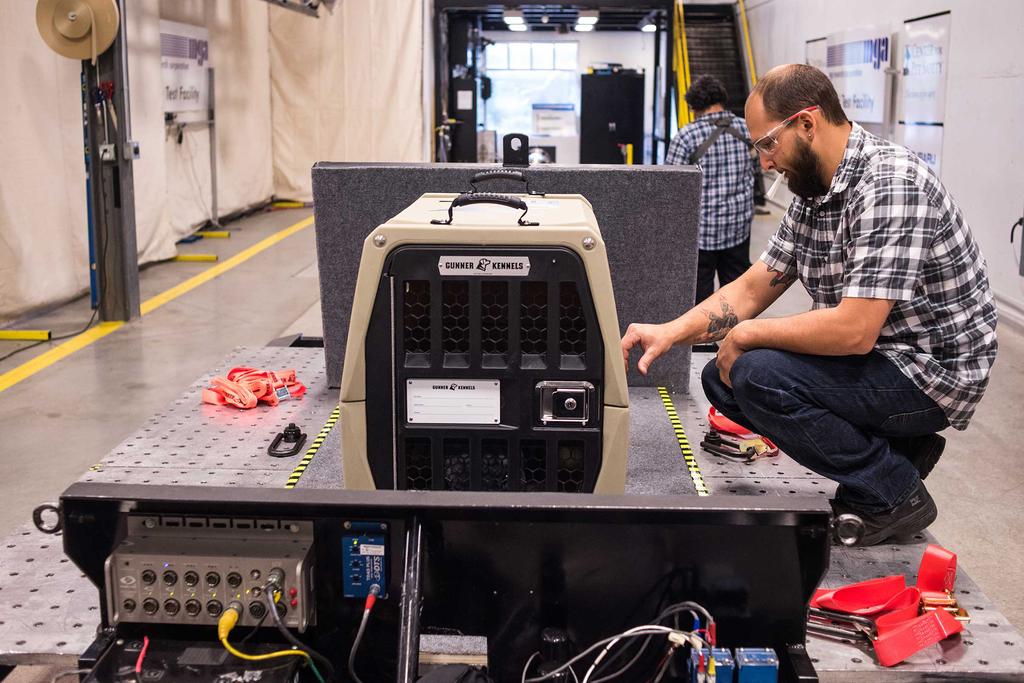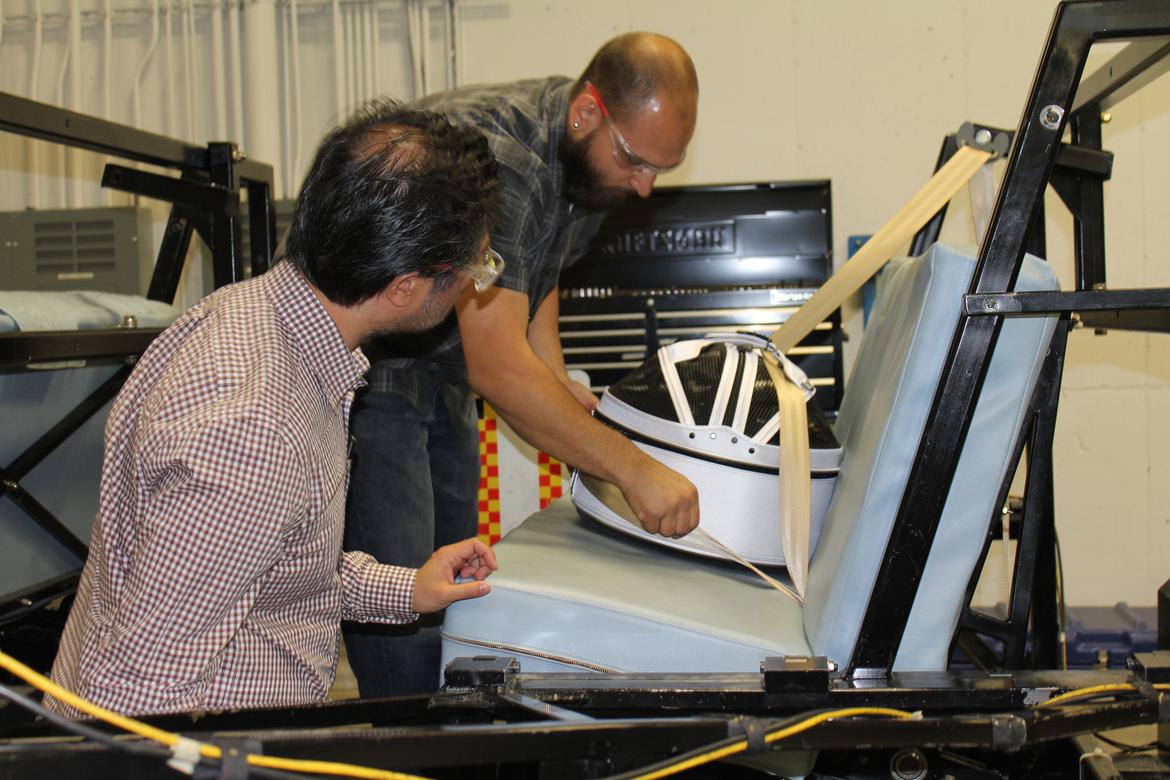
Pet owners looking for independently tested products to safely transport their four-legged companions now have some options: The Center for Pet Safety and Subaru of America have released the results of their 2015 Crate and Carrier Crashworthiness Studies.
The nonprofit consumer advocacy organization and Subaru first joined forces in 2013 to test pet-safety harnesses; the current studies focus on the safety of crates, carriers and the connectors they use.
Related: Tested: Clickit Sport Dog Harness
Of the six crates and eight carriers tested, Gunner Kennels' G1 Intermediate crate with 8-inch tie-down straps was named the 2015 Top Performing Crate ($485); the PetEgo Forma Frame Jet Set carrier with ISOFIX-Latch connection ($140-$160) and the Sleepypod Mobile Pet Bed with the PPRS Handilock ($159.99 to $179.99) were the 2015 Top Performing Carriers. These products were deemed crashworthy because they met the test criteria of containing the test pet before, during and after the crash test, and the crate/carrier and all connection points remained connected to the test bench or cargo area for the duration of the test.
Higher-priced test crates included 4pets' Proline Milan, MIM Safe's Variocage Single and Roto Mold's Ruff Tough Kennel, which all failed. The carriers that failed the tests were the PetBuckle Auto Kennel Restraint, the Snoozer Roll Around Travel Dog Carrier Backpack 4-in-1, the Petmate Compass dog carrier, the Petmate Vari Kennel plastic carrier, the Kurgo Wander carrier and the PetEgo Pet Tube.
CPS called the Gunner Kennel "unique," saying that its dual-locking door provides "significant structural support to the door" and with its strength-rated anchor straps tightened, the crate gripped the cargo area's carpet "unlike any other crate we have tested. This is a significant travel device, with outstanding structural integrity."

The Sleepypod Mobile Pet Bed with the PPRS Handilock Sleepypod
As for the carriers, CPS called PetEgo's Latch feature an "innovative connection design" that held the carrier securely, noting that the carrier fully contained the test dog during impact. When paired with the PPRS Handilock, the Sleepypod Mobile Pet Bed "performed exceptionally well. The product is unique in its form and snugly straps into the seat with the lap and shoulder belt system."
Critical to any pet's safety in a crate or carrier is making sure that the product is the right size. In general, it should be no more than 6 inches longer than the pet. This snug fit helps minimize the risk of pet injury during a sudden stop or crash. Connectors are also critical, whether the devices use shoulder and lap belts, Latch anchors or cargo straps; the connectors must be strong enough to maintain connection during impact.
CPS tested several types of crates and carriers; some made claims of being crash-tested and others were marketed as appropriate for travel but were not tested. CPS set a price cap of less than $1,000 (including shipping) for crates and a cap of $150 for "value" wire crates popular with consumers. There was not a price cap for the carriers, but the test included plastic carriers with wire doors, also popular with pet owners. Test "pets" simulated cats and dogs ranging in weight from 15 to 110 pounds. Testing was done at MGA Research Corp., an independent National Highway Traffic Safety Administration testing laboratory; CPS representatives were observers. Subaru provided funding for the studies.
CPS also tested a Midwest Dog Crates wire kennel with rubber anchor straps and a Midwest wire kennel with a reinforced cage support system. When secured with rubber straps as tie-downs, the first wire crate failed the test — the straps failed to keep it in place, and the crate was severely deformed. For the second test, CPS designed a reinforcing system made from several strength-rated cargo straps in an attempt to make the wire crate perform better. While the straps kept the crate in place, the test dog hit the back of the crate so hard that it broke through the crate and hit the seatback.
"Wire crates should be considered distraction prevention tools and will not provide significant protection in the case of an accident," CPS said in a statement.
Along with providing consumers with crashworthiness information, these studies also aim to educate pet owners about the difference between pet-containment products designed to prevent distraction and those designed to provide crash protection. In the final analysis, 11 of the 14 tested products simply serve to prevent distraction and do not provide adequate protection for pets or people in the event of a crash.
CPS also collected the data necessary to create a formal test protocol and ratings guidelines for pet travel crates and carriers in order to certify products in the future
To see videos of the tests, click here for crates and here for carriers. To read the complete crate study, click here and for the carrier study, click here.
No comments:
Post a Comment